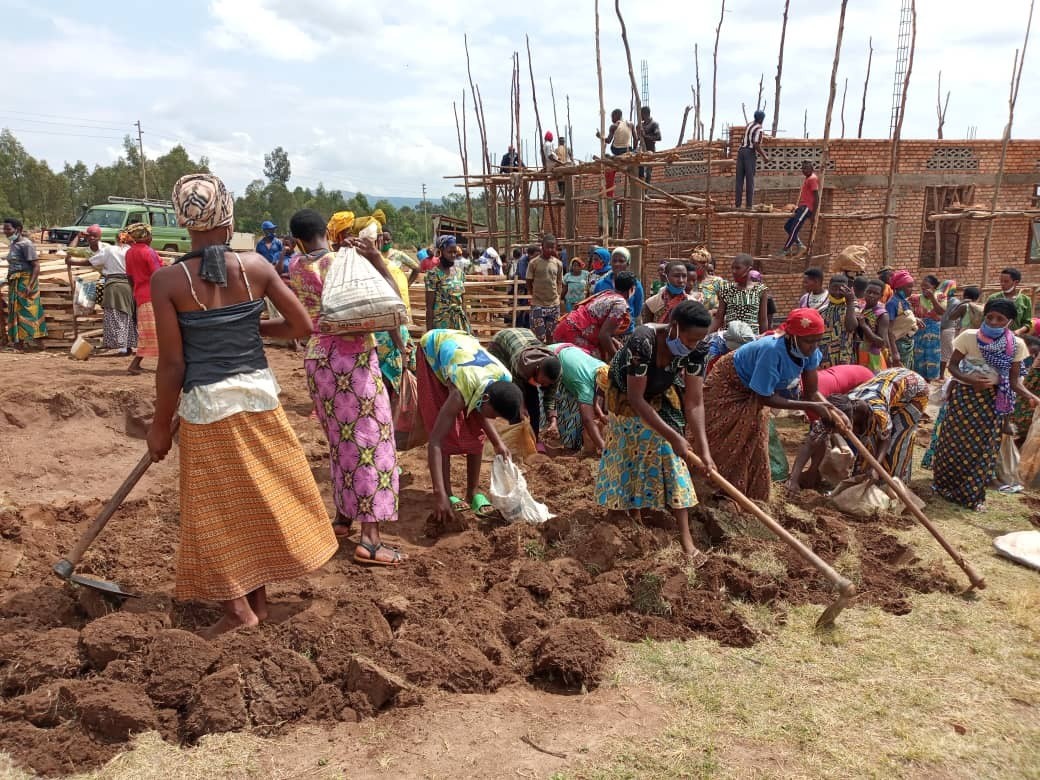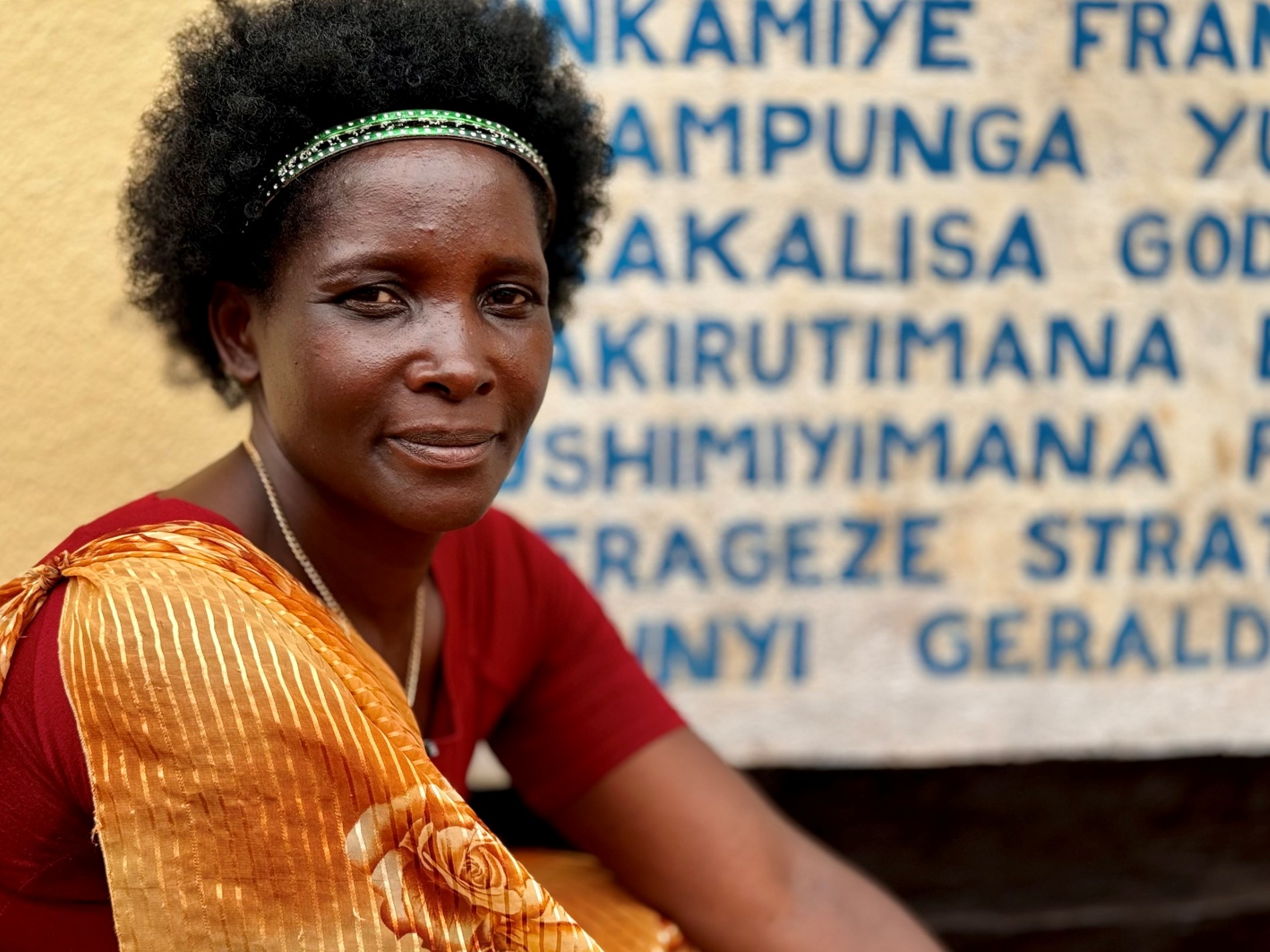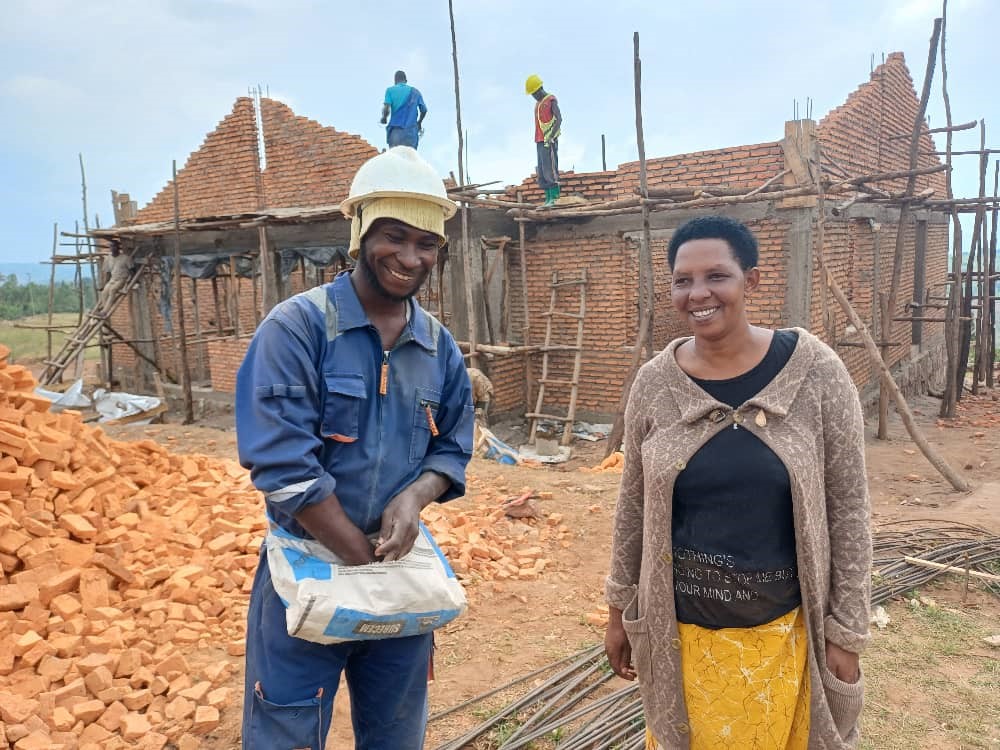“I didn’t want to see another mother needlessly die in childbirth” - Specioza Our organizing in Rwanda began in 2009 in the rural village of Mumeya, where mothers…
Rwanda: PICO leaders hold themselves and government accountable for public health projects
“I am amazed at the progress I am seeing in this community. Twenty-five years ago, it was devastated by the genocide. Now it is united in building this clinic.” – Msgr. Matata, Catholic Bishop of Kibungo Diocese
In Rwanda, the roof is now going on the community health clinic that will serve 20,000 families in Nyarubuye. Hundreds of women from six villages recently organized work teams to clear land around the clinic so trees can be planted to preserve the environment. Community and government leaders continue conducting a health education campaign about coronavirus. The Mumeya and Rusumo clinics constructed by PICO Rwanda leaders in rural communities are providing the public health infrastructure that is the key to success in combatting the pandemic. This community-based approach is widely recognized as essential to any successful public health system.
In Nyange, leaders have completed construction of a storage and pumping system to bring water from the valley to the highway rest stop and market. They are now planning construction of modern toilets and a roadside market so travelers have place to stop, rest and shop for farm goods. Finding ways to provide sustainable income is a critical question for rural communities in Rwanda and other African countries.
Rwanda is seen as a model of economic growth, gender equity, and public health investment for many developing countries, but mushrooming youth populations and growing wealth disparity are challenges that can only be addressed if grassroots people learn to hold government accountable to those issues.



